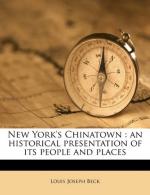|
This section contains 545 words (approx. 2 pages at 300 words per page) |

|
Gentry Class. Commercial development during the Song dynasty (960-1279) brought profound social and cultural changes. China was transformed from a highly aristocratic society of the early Tang period (618-907) into the nearly "nonaristocratic and more egalitarian society" of the Song era. A variety of factors contributed to this change. First, a simplified tax system implemented since the late Tang era made it difficult for the great aristocratic families to evade paying taxes. Second, a growing commercial and money economy made it impossible for the aristocratic estates to stand alone as self-sufficient economic units. Third, the more-developed civil service examination system provided the country with leadership based not on hereditary wealth but on individual talent. Consequently, the aristocracy merged into a much broader social bracket of the gentry (landowners in the Western world) class.
Characteristics. Different...
|
This section contains 545 words (approx. 2 pages at 300 words per page) |

|




